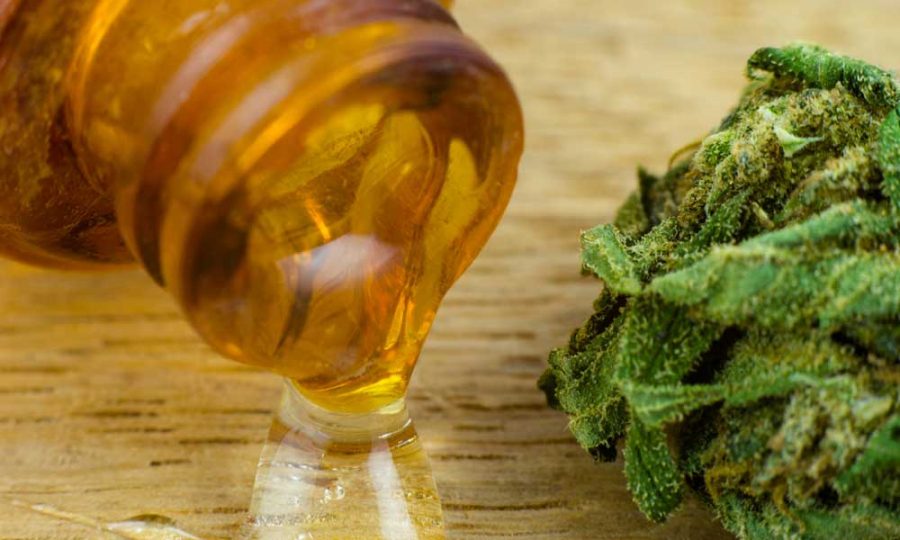Despite legalization, the CBD and hemp industries are facing discrimination
Thankfully, a chunk of legislation recently introduced – “the CLAIM Act” – could protect cannabis business owners from federal prosecution
The 2018 U.S. Farm Bill was expected to eliminate the uncertainty that enshrouds the hemp and CBD industries. In spite of it passing with President Donald Trump’s signature in December of last year, a great deal of discrimination still clouds the ambiguous legal CBD market.
CBD (cannabidiol) is the non-psychoactive constituent of the cannabis plant. In addition to being produced by the cannabis plant – which can grow with copious amounts of the psychoactive cannabinoid THC (tetrahydrocannabinol) – CBD can also be derived from the hemp plant. Both plants belong to the Cannabaceae family, but hemp never grows with more than 0.3 percent THC. The differences between hemp and cannabis create confusion for industry players, many of whom are struggling to adapt to the strict regulation of CBD by the Food and Drug Administration (FDA).
Under the terms of the Farm Bill, only hemp-derived CBD is legal in all 50 U.S. states because cannabis is still illegal under federal law. Ultimately, this has led to a profusion of challenges permeating the CBD industry, from banking woes to advertising limitations.
Facebook is restricting ads that mention CBD
 Recently, a lawsuit was filed against Facebook by seven cannabis dispensaries and their owners in Oklahoma. Even though cannabis was legalized in the conservative state on June 26, 2018, cannabis companies are still being discriminated on the social media platform.
Recently, a lawsuit was filed against Facebook by seven cannabis dispensaries and their owners in Oklahoma. Even though cannabis was legalized in the conservative state on June 26, 2018, cannabis companies are still being discriminated on the social media platform.
Compensation to the amount of $75,000 is being sought by the plaintiffs, who are claiming “economic harm” after their Facebook pages were censored due to the nature of their content.
On the other hand, the admins of a pro-cannabis Facebook page titled “Marijuana” are attempting to use Facebook as a platform for promoting the plant. The page has garnered almost three million likes from users and features bold a tagline that reads, “Freedom doesn’t exist if nature is illegal!”
For months, Facebook officials have contemplated loosening restrictions on CBD advertising and cannabis-focused marketing. Currently, it is strictly forbidden to advertise or promote CBD with the use of unsolicited health claims.
Things will surely change if federal restrictions are lifted. Until this time, the FDA will continue to tightly regulate the CBD market as a whole and research will likely be hindered.
CLAIM Act designed to expand insurance options for the CBD industry
Luckily for businesses operating in the cannabis and hemp industries, a new law has been proposed to lawmakers. It is called the “Clarifying Law Around Insurance Marijuana (CLAIM) Act.” The CLAIM Act was put before the U.S. House of Representatives at the end of July.
Introduced by Republican Rep. Steve Stiver from Ohio and New York Democrat Rep. Nydia Velázquez, the CLAIM Act would open a window for opportunity pot companies to gain coverage from an expanded range of insurance options. The act would also shield industry players from federal prosecution.
“Without casualty, property, and title insurance coverage, the growth of this industry will be impeded if not blocked entirely,” Velázquez said in a press release.
Furthermore, if the bill is approved, budding ‘cannapreneurs’ who may currently feel disadvantaged – such as minorities and women – stand to benefit. Velázquez says the regulatory framework that constitutes the CLAIM Act will spur on studies exploring the obstacles faced by disadvantaged groups.
“As we normalize these products and this becomes a business, we must ensure [that] minorities, women and other disadvantaged groups are able to enter this market and profit from this burgeoning industry,” he announced.
How does the future look for the CBD industry?
Federal restrictions on the cannabis plant and its derivatives, such as CBD, have made it tricky for businesses to navigate the waters of the industry. On a positive note, the market is well and truly booming, in spite of the cannabis plant’s Schedule I classification under the Controlled Substances Act.
Based on a report published by Brand Essence Research, the market is witnessing major growth. In 2018, the CBD oil market was valued at $23.37 million in 2018; a figure that is forecast to reach $1068.54 million by 2025, growing at a compound annual growth rate (CAGR) of 21.5 percent.
Long-serving Republican and co-founder of the Congressional Cannabis Caucus, Dana Rohrabacher, thinks that complete cannabis legalization is likely in 2020. Rohrabacher was voted out of Congress during the midterm elections. He is a long-time cannabis advocate and one of the first members of Congress to push for legalization.
There are many reasons why the federal government is contemplating cannabis legalization, including the prospects of an amplified economy and the dismantling of the black market. Let’s not forget about the fact that a wave of cannabis reform is even starting to wash over Europe, too.
For now, the CBD industry’s kinks are still being straightened out. If cannabis reform does happen next year, as some industry analysts (and Rohrabacher) foresee, CBD businesses must be taken seriously and treated like any other regulated industry.









